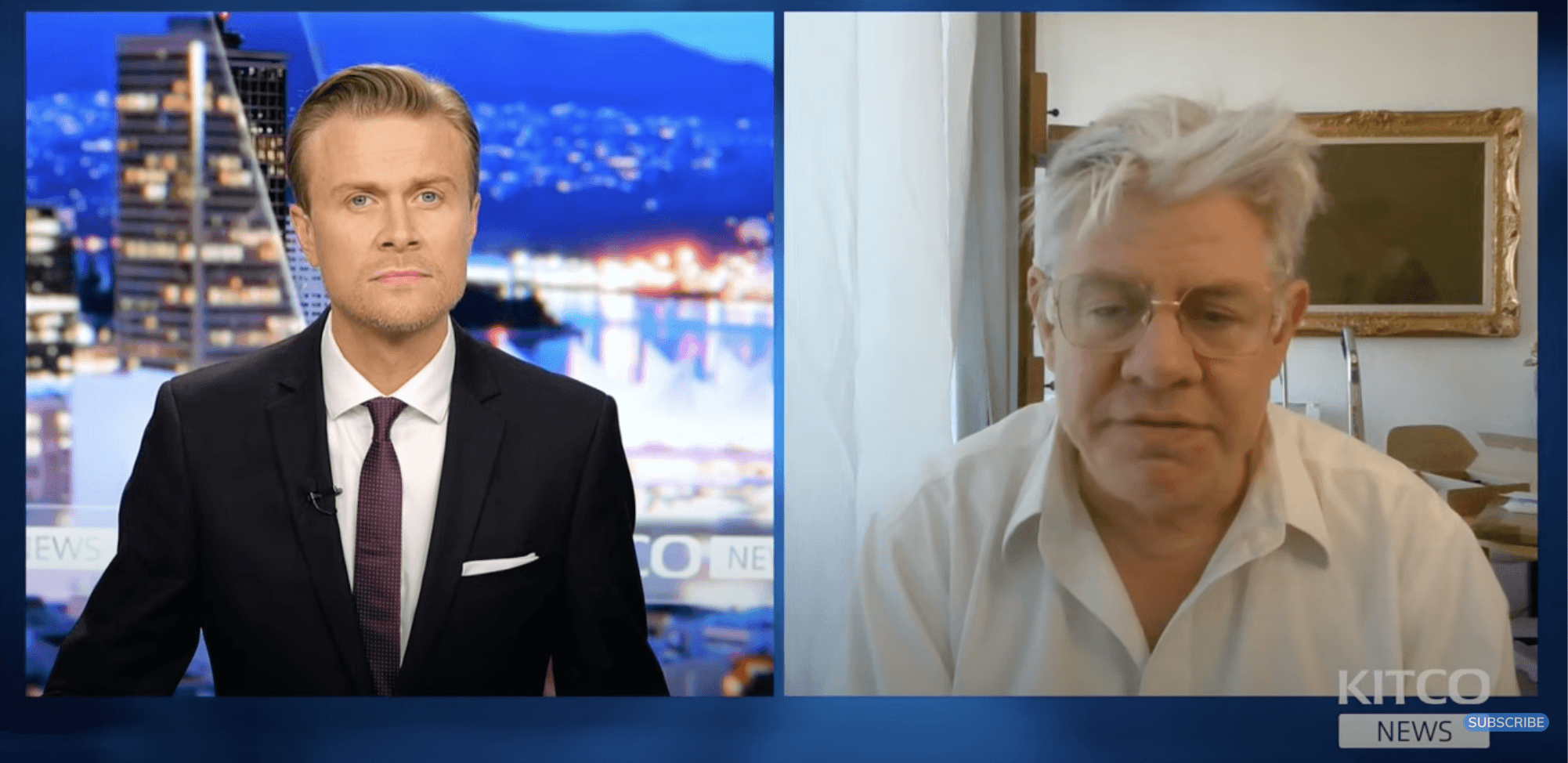在线区块链的首席执行官克莱姆·钱伯斯告诉Kitco新闻主播杰里米·萨夫隆,约30%的美国食品包装来自中国,如果特朗普的关税生效,这些包装可能会消失。他认为,塑料薄膜和肉盘的突然短缺将使杂货价格通胀增加“4%、5%、6%或7%”,并比投资者预期的更快导致货架空空如也。
“你知道的,那些你放鸡翅的小蓝袋子。如果没有它们,你在超市就不能买到鸡翅,对吧?”他问道,并辩称真正的危险是“没有人谈论的事情”。

Kitco新闻主播杰里米·萨夫隆(左图)与资深投资者、在线区块链首席执行官克莱姆·钱伯斯(右图)。
这位企业家还警告说,货币政策仍然是一个变数。“美联储是美国的仙女教母……如果事情变得糟糕,他们会拉动印钞的杠杆,”钱伯斯说,并预测任何重新启动的量化宽松(QE)可能会重新点燃8%到9%的通胀。
他认为,避险需求在从波兰到中国的政府购买黄金中已经显现出来。“黄金是为了战争。比特币是为了逃避,”他说,并补充说地缘政治紧张局势可能会将黄金推向每盎司5000美元,如果冲突加剧,可能会有通往每盎司10000美元的黄金之路。
钱伯斯认为,比特币目前接近95000美元的价格反映了资本对可携带性的需求。然而,他警告说,如果世界平静下来或美联储拒绝增加流动性,领先的加密货币可能会回落到60000美元,并指出之前的周期显示在压力减轻时会出现“双顶”。
鉴于不确定性,这位《福布斯》专栏作家表示,他将约92%的投资组合持有现金和贵金属,同时减少以太坊(ETH)的投资,认为华尔街日益增长的影响力可能会抑制过大的加密货币收益。
钱伯斯承认,一旦美国监管机构从执法转向明确规则,区块链技术本身仍然充满希望,但他愿意“坐在那里看世界过去”,直到供应链状况和政策方向变得更加清晰。他希望自己悲观的情景被证明是错误的,但他坚持认为,忽视安静的管道风险可能会引发他所担心的雪崩。
免责声明:本文章仅代表作者个人观点,不代表本平台的立场和观点。本文章仅供信息分享,不构成对任何人的任何投资建议。用户与作者之间的任何争议,与本平台无关。如网页中刊载的文章或图片涉及侵权,请提供相关的权利证明和身份证明发送邮件到support@aicoin.com,本平台相关工作人员将会进行核查。




